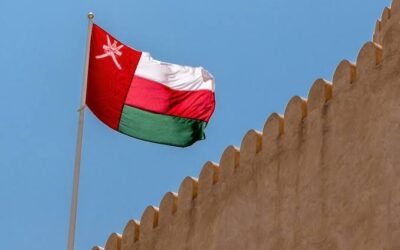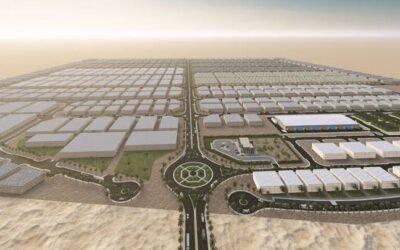Oman’s Food Security Revolution: Pioneering Sustainability and Resilience in the GCC
Oman has made remarkable progress in the Global Food Security Index, improving by 13.8 points since 2012. By 2022, Oman ranked 35th worldwide with a score of 71.2 out of 100, moving up five positions from the previous year. This positive trend continued into 2023 as Oman focused on enhancing its agricultural, fisheries, and water resource sectors, demonstrating a strong commitment to food security aligned with the goals of Oman Vision 2040.
Strong Performance Across Food Security Dimensions
Oman excels in various aspects of food security, ranking 21st in affordability, 34th in food availability, 42nd in quality and safety, and 60th in sustainability and resilience. The country has nearly achieved self-sufficiency in fisheries and is making strides in poultry and agriculture, with 102 ongoing projects dedicated to food security across these sectors.
Support for Local Agriculture
A key initiative in Oman’s food security strategy is the government’s investment of RO 5 million in local wheat production, which will continue through 2027. This support has led to an increase in wheat cultivation area, boosting production from 2,167 tonnes in 2022 to nearly 7,000 tonnes in 2023. The Ministry of Agricultural, Fisheries, and Water Resources has also developed eight wheat varieties suited to Oman’s climate, promoting sustainable agricultural growth.
Economic Contribution of Agriculture, Forestry, and Fishing
In 2023, the agriculture, forestry, and fishing sectors contributed approximately 2.4% to Oman’s GDP, up from 2.3% the previous year. This growth, driven by innovative technologies, policy reforms, and strategic investments, underscores Oman’s dedication to food security and economic diversification. The sectors reached a value of RO 451.2 million in the first half of 2024, according to the National Center for Statistics and Information.
Technological Innovations
Oman is integrating advanced technologies, such as artificial intelligence and digital agriculture, into its agricultural and fisheries sectors to enhance productivity and water-use efficiency. These initiatives focus on water conservation, crucial in a region with limited freshwater resources. Techniques like hydroponics, aquaponics, and desalination are being utilized to maximize crop yields while minimizing water consumption.
Enhancing Food Safety and Community Support
Oman has strengthened its food safety and quality standards through regulatory reforms, including the Oman Food Safety Law. The Oman Food Bank, in collaboration with local agencies, has played a vital role in distributing food to low-income families, reaching over 6,000 households and delivering 250 tonnes of fruits and vegetables. This community-focused approach aligns with the FAO’s global goals for hunger reduction.
Investment in Sustainable Food Production
Oman’s public investment arm, “Nitaj,” has been pivotal in supporting food production projects worth RO 457 million. In 2023, “Nitaj” forged partnerships with SMEs, local farmers, and regional entities, emphasizing sustainable agriculture and high-quality food production, positioning Oman as a leader in GCC food security initiatives.
Growth in the Fisheries Sector
Oman’s fisheries sector has seen significant growth, with fish exports surpassing 226,000 tonnes in recent years. The Ministry has expanded the fisheries market to include countries like Russia, Vietnam, Brazil, and China. Additionally, seventy-four fisheries companies have received international quality certifications, enhancing Oman’s reputation as a reliable seafood supplier.
Regional Collaboration for Food Security
Oman actively collaborates with GCC neighbors to support regional food security, particularly during global uncertainties. These partnerships facilitate shared knowledge and resource resilience, enabling joint responses to potential crises. Within the GCC, Oman ranks among the top countries for food affordability, reflecting a stable policy environment and investment in local agricultural infrastructure.
Addressing Climate Change with Advanced Technologies
To combat climate change and resource scarcity, Oman has adopted cutting-edge agricultural technologies, including drones for pollination, solar-powered greenhouses, and AI-driven data analytics for precision irrigation. A recent pilot project achieved a 20% reduction in water usage while increasing yields, showcasing technology’s potential to enhance agricultural sustainability.
Future Goals Under Oman Vision 2040
Under Oman Vision 2040, the country has set ambitious goals to boost domestic food production by 30% and reduce reliance on imports over the next decade. The Ministry’s emphasis on eco-friendly agricultural practices, sustainable water management, and community engagement reflects a comprehensive approach to securing food for future generations.
Oman’s multi-faceted strategy for food security highlights its resilience and leadership in the region. By aligning with international standards and fostering regional collaboration, Oman is well-equipped to tackle food security challenges and contribute to a more stable food system across the GCC and beyond.
Hassan Al Maqbali
Content Creator & Website Manager at Omanspire
Hassan Al Maqbali is a dedicated content creator and the website manager at Omanspire, where he writes passionately about Oman's culture, history, and the timeless stories that shape the nation’s identity. His work reflects a deep love for the Sultanate and a commitment to sharing its beauty with the world.
Driven by a desire to widen global understanding of Oman, Hassan creates narratives that present the country through diverse perspectives—capturing its people, heritage, landscapes, and evolving cultural heartbeat. Through Omanspire, he hopes to bring readers closer to the spirit of Oman, one story at a time.




